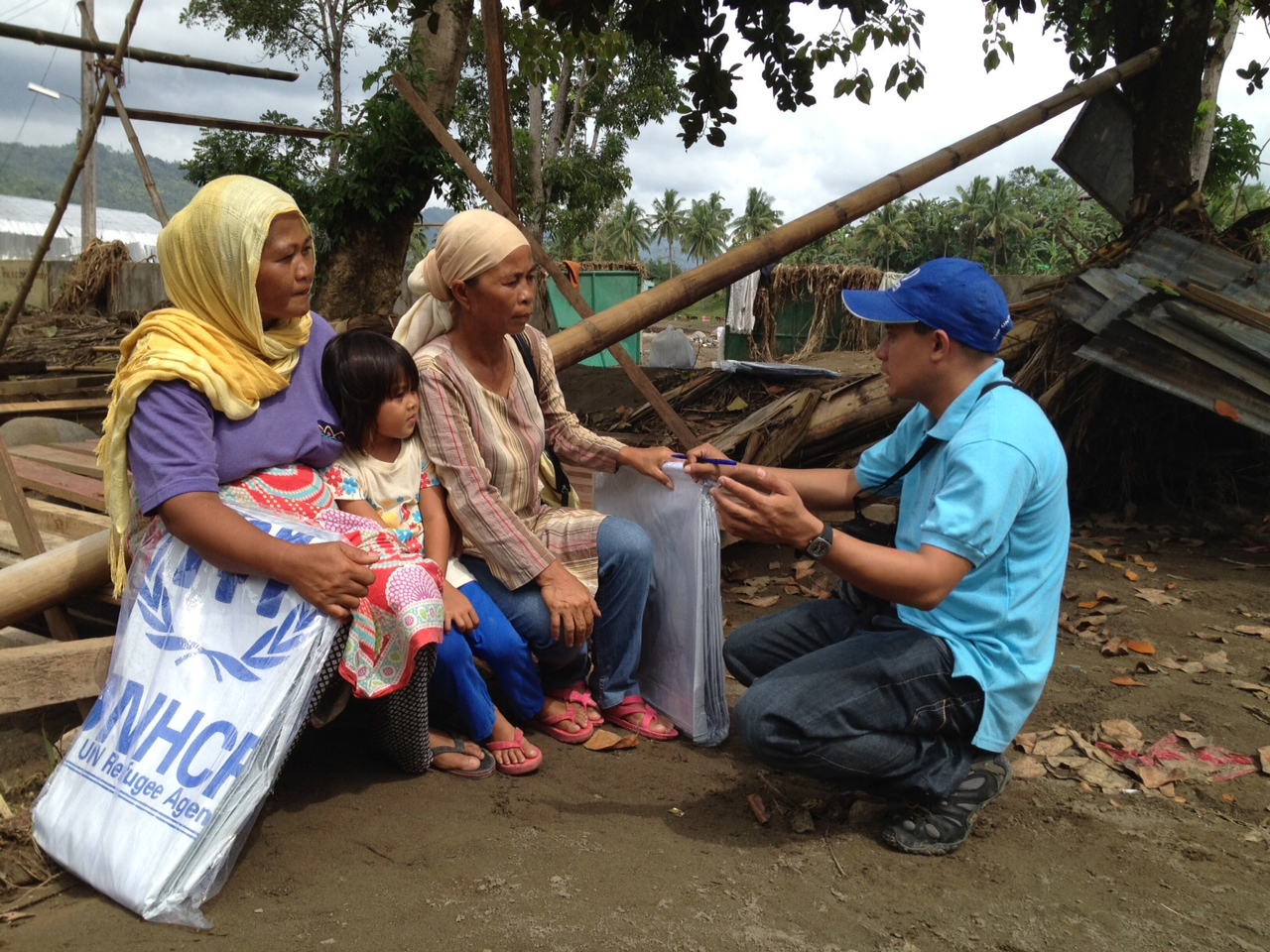Earthquake team deployment sharpens focus on emergency training
Earthquake team deployment sharpens focus on emergency training

NEUHAUSEN, Germany, October 18 (UNHCR) - Over the past week, the UN refugee agency has dispatched six emergency staff to Pakistan to help with the response to the earthquake crisis. One member of the team, site planner Charlemagne Kpakpo, was plucked straight from a week-long intensive emergency training course in Germany and sent to Islamabad, leaving other course participants very aware that their training could be put to immediate use.
"The site planner was very enthusiastic and eager to serve and put into practice what he had just discovered at the WEM [Workshop on Emergency Management]," UNHCR's Chief of Emergency Preparedness and Response Bernard Kerblat said in Neuhausen. "The training he did here helps team members to integrate better and more quickly into an existing team, and that's a big part of the challenge," he added.
The emergency deployment was also a sharp reminder to the other 35 participants on the course that they too could shortly find themselves sent to the frontline of an emergency anywhere in the world.
"The other participants suddenly started asking what the potential hotspots they could be sent to are. That's difficult to predict. But - with a degree of certainty - we can predict a certain number of colleagues will end up in southern Sudan for the very large-scale repatriation which is on the horizon," Kerblat said.
Around 40 participants, mainly UNHCR staff from different parts of the globe, attend the WEM, which takes place three times a year, and has recently been held in Germany, Sweden and Norway. The course in Neuhausen receives substantial financial and material support from the German government's disaster relief organization Technisches Hilfswerk (THW), and the German Ministry of Foreign Affairs.
For UNHCR, the WEM plays an extremely important part in the organization's efforts to respond to emergencies. The staff are trained in the practical elements of emergency response such as security, telecommunications, 4WD driving and first aid. They are also taught to cope with stress and fatigue, as well as to conduct emergency planning, coordination, administration and how to deal with the media - who in big emergencies can number several thousand. Once the participants have all their vaccinations up to date, administered by a local hospital, the staff go onto the emergency roster and are considered ready for action.
"This training basically gives the backbone to UNHCR's emergency response," Kerblat said. "The colleagues are all volunteers, and thanks to them we can respond within 72 hours to an emergency anywhere in the world."
The WEM-trained staff remain on the agency's emergency roster for 6-9 months, and must be prepared to drop everything and travel at a few hours' notice for a deployment of up to two to three months. Some of them may even be deployed to two different emergencies during their time on the roster.
The course itself is mentally and physically demanding, ending in a day-long emergency simulation involving seven "incidents" in the nearby woods. These are designed to test every aspect of what the participants have learned. Dozens of volunteers take part, including 50 kindergarten children, who play the part of refugee children in one simulated incident. The army, federal police and many volunteers from Technisches Hilfswerk are all involved, creating an extremely realistic atmosphere.
"The simulation exercises are really important because they can demonstrate the knowledge they learnt in various sessions of the WEM. They don't know exactly what will happen," said UNHCR's senior field safety officer Michael Dell'Amico, who spent several hours briefing participants on security matters.
"The nature of our work, by definition, brings us into places where conflict is going on ... our staff have to not only know how to respond to a situation, but also to read and analyze a situation, and act before it's too late," he added.
Returning to the THW training centre in Neuhausen, muddy and exhausted after the day's simulation exercises in the bright autumn sunshine, WEMers - as they are known - were generally extremely positive about the impact of the course and their own emergency preparedness, despite having to cope with some harrowing experiences.
"At the beginning it was a shock, because we started with a very hard incident, but we bonded as a team and from then on we discovered each other's skills and capacities and how we could work as a team," said Victoria Camara, a community services assistant currently posted in Guinea.
"It was a kind of reality - it gave you some reality of what you will experience in the field," added Nur Kassim, usually a field assistant in Dadaab, Kenya.
With one WEMer already deployed to Pakistan even before the course was over, the others who have just qualified for the emergency roster realize that their turn may come any day now.
UNHCR has already deployed six additional emergency staff to Pakistan including the site planner, a logistics officer, two camp managers, and a programme officer, with another two due to arrive shortly. The deployment of a further three emergency staff - including a second site planner - is also being considered.
By Jennifer Pagonis in Neuhausen, Germany







